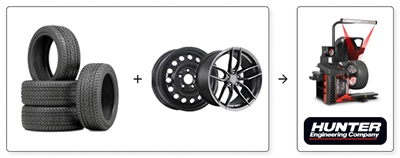What are the 4 essential fluids for your car in winter?

One of the most important things to keep in mind during the winter season is maintaining the proper level of the 4 primary fluids: windshield washer fluid, antifreeze, oil and brake fluid.
Windshield washer fluid
Why should I use winter windshield washer fluid?
Canadian winters make driving difficult because of snow, ice, slush and dirt on the road. Before you hit the road, make sure you have good visibility.
Winter windshield washer fluid is designed primarily to clean and de-ice the windshield. It is recommended to use winter washer fluid when the mercury drops below zero degrees Celsius.
Be sure to empty the washer fluid reservoir at the end of the summer. Using summer washer fluid in the winter can lead to hose failure and pump breakage.
During the winter, we recommend using washer fluid rated at -45°C. This way, the product will be optimally effective even at the coldest times of the season.
And don't forget to properly clear your vehicle of snow and ensure your headlights and wipers are in good working order.
Antifreeze
Antifreeze is one of the most important things you need to keep your engine running smoothly. Vehicle owners often neglect to replace it at the intervals prescribed by the manufacturer.
This neglect can have costly consequences.
Antifreeze helps the cooling system work appropriately in three ways. First, it dissipates the heat generated by the engine operation.
Second, it raises the boiling point of water and lowers its freezing point.
Finally, antifreeze prevents the formation of corrosion that can damage the engine. It is essential to check the coolant level during periodic maintenance.
Oil
If it's been about six months since your last oil change, it's a good idea to do another one before winter.
Oil plays a vital role in the proper operation of an engine and should not be neglected. It has four functions.
It lubricates engine parts and slows down wear. It protects metal parts from corrosion. Oil cleans by capturing deposits and transporting them to the filters.
And finally, oil cools the engine where the coolant does not pass.
Oil changes should be done regularly to maintain the vehicle manufacturer's warranty and extend the engine's life.
Brake Fluid
The cold is one of the most critical tests to which our vehicles are subjected. Brake fluid is a glycol-based fluid with a freezing point of approximately -40°C.
Glycol-based brake fluids are hygroscopic, meaning they absorb moisture from the air and are, therefore, more likely to freeze in extreme cold as the water content of the fluid increases.
Moisture in the brake fluid can cause problems because it lowers the boiling point and can cause corrosion in the brake system. Repairs can become costly if the wrong liquid corrodes callipers, brake lines and anti-lock brake system (ABS) controller parts.
A lower boiling point reduces brake performance under severe braking conditions, such as driving on a mountain road.
A winter kit
We recommend that you equip your vehicle with a winter kit, especially if you are planning long trips or major outside centers. During the cold season, you never know what the road will bring.
This winter kit should include, at a minimum, the following items.
- A shovel
- Warm clothing
- A snow broom and scraper
- A fresh container of winter windshield washer fluid and a roll of paper towels
- A flashlight


